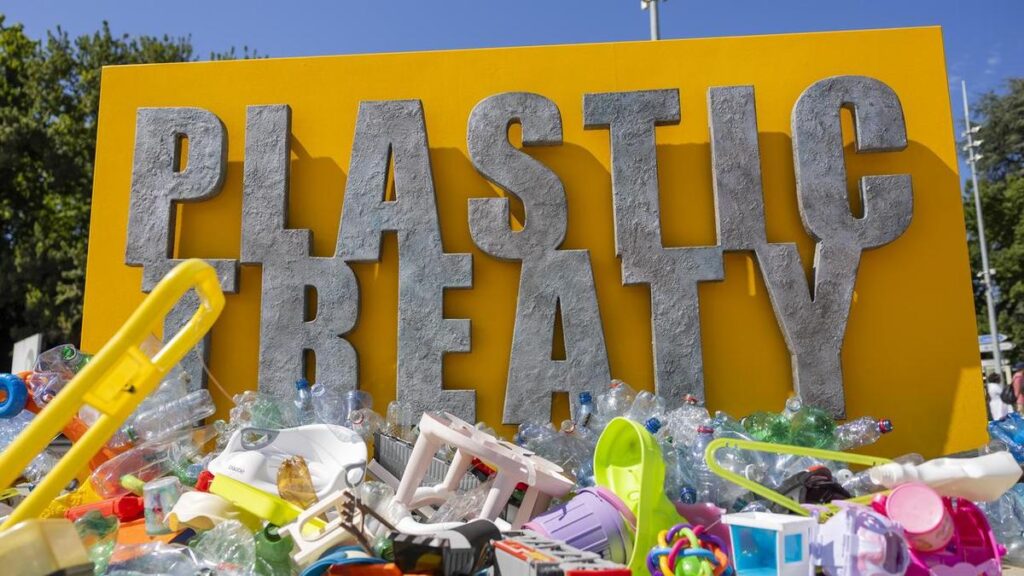
URGENT UPDATE: The United States has officially urged multiple countries to reject the establishment of limits on plastic production and chemical additives, as pivotal negotiations kick off in Geneva related to a global plastic treaty. The memos, dated July 25, signal a significant departure from the positions held by over 100 nations advocating for stricter measures against plastic pollution.
As delegates gather for what was anticipated to be a conclusive round of negotiations, hopes for an ambitious global treaty are rapidly fading. The US, led by a delegation of career State Department officials, is setting forth its “red lines,” directly opposing key elements of the proposed agreement focused on the entire life cycle of plastic pollution—from production to disposal.
Discussions in Geneva reveal a stark divide between oil-rich nations that resist caps on virgin plastic production and countries like the European Union and various small island states that push for stringent regulations and better management of hazardous plastics. The US has firmly stated it will not support a treaty addressing upstream plastic pollution, arguing that it could escalate costs for essential plastic products used daily.
According to an official memo, the US expressed skepticism about reaching a consensus on provisions aimed at managing plastic production and additives. It reads, “We plainly do not see convergence on provisions related to the supply of plastic… also known as the global list.” A spokesperson for the State Department reiterated that each country should tailor its actions based on its own national context, allowing for varying approaches to the issue.
John Hocevar, Oceans Campaign Director for Greenpeace USA, criticized the US’s tactics, comparing them to “old school bullying” reminiscent of the Trump administration. Hocevar emphasized that these strategies aim to leverage US financial influence to sway nations toward its preferred stance, which broadly aligns with the interests of the global petrochemicals industry.
The US has also proposed significant changes to the treaty draft, advocating for the removal of language that addresses the full life cycle of plastics. Sources indicate that this move seeks to renegotiate terms previously agreed upon in 2022, reflecting a pushback against established consensus on tackling plastic pollution.
The urgency of the situation cannot be overstated. Without intervention, plastic production is projected to triple by 2060, exacerbating environmental crises such as ocean pollution, human health risks, and escalating climate change, according to the OECD. The ongoing negotiations in Geneva are critical, as they could potentially shape global environmental policy for generations to come.
As this situation develops, the international community is closely monitoring the negotiations, with significant implications for global environmental standards and public health. What happens next could redefine the landscape of plastic production and its environmental impact for years ahead.
Stay tuned for further updates on this critical issue impacting the future of our planet.





